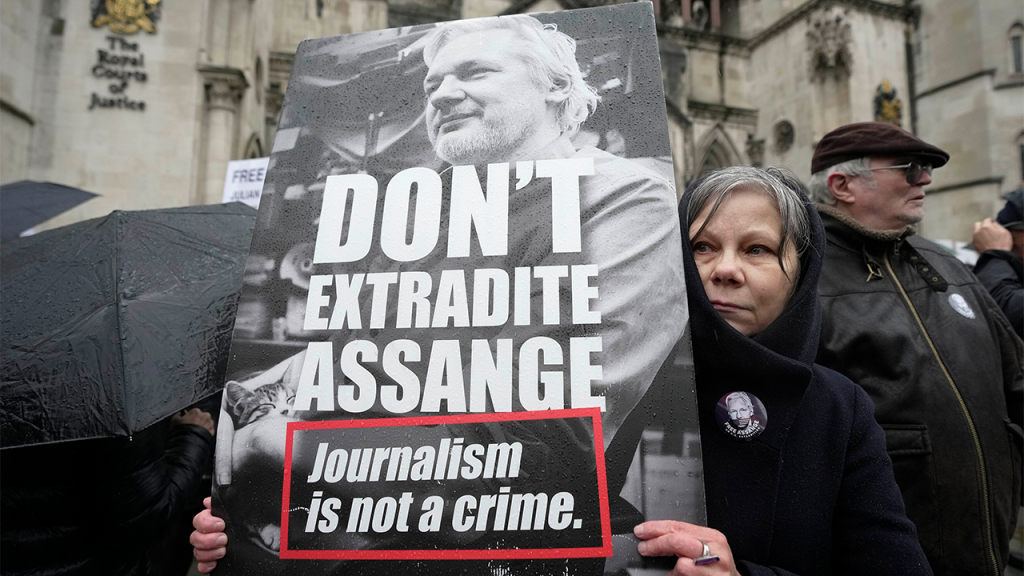On Tuesday, judges in Britain will make a crucial decision regarding the extradition of Julian Assange to the U.S. Assange, the founder of Wikileaks, is facing espionage charges for publishing classified U.S. military documents 14 years ago. If the High Court rules in Assange’s favor, a full appeal hearing could follow, but if not, his remaining options would be limited. The decision is highly anticipated, with hopes among Assange’s supporters that he will not be extradited.
Assange, 52, has not yet been tried in a U.S. courtroom as he fled the country, and if extradited, he would face trial in Alexandria, Virginia. The charges against him stem from WikiLeaks’ 2010 publication of cables leaked by U.S. Army intelligence analyst Chelsea Manning, detailing alleged war crimes and other misconduct by the U.S. government. If convicted on the 17 charges he is facing, Assange could be sentenced to up to 175 years in an American maximum-security prison. The decision on Tuesday could have significant implications for his future.
Assange has been held at London’s high-security Belmarsh Prison since being removed from the Ecuadorian Embassy in 2019. Previous efforts to block his extradition were overturned after the U.K. received assurances from the U.S. regarding his treatment. U.S. prosecutors argue that Assange endangered lives by publishing classified materials and went beyond journalism in his efforts to obtain and publish sensitive government documents. They claim he encouraged and assisted Manning in stealing military and diplomatic files that were later published by WikiLeaks.
The Obama administration decided not to indict Assange in 2013, citing concerns about the potential impact on press freedom. However, under former President Trump, the Justice Department moved to indict Assange under the Espionage Act, a move that has drawn criticism from press freedom groups. The Biden administration has continued to pursue his prosecution, despite concerns about the broader implications for journalism. The outcome of Tuesday’s decision will have far-reaching consequences for Assange and the future of press freedom.
Assange’s legal team has expressed concerns about the lack of progress in resolving the case against him, despite reports that the U.S. Justice Department was considering allowing him to plead guilty to a reduced charge. The case has sparked international debate about the balance between national security concerns and the rights of journalists to publish sensitive information in the public interest. Tuesday’s ruling will be closely watched by supporters and critics alike as it will determine Assange’s fate and set a precedent for future cases involving press freedom and national security interests.


